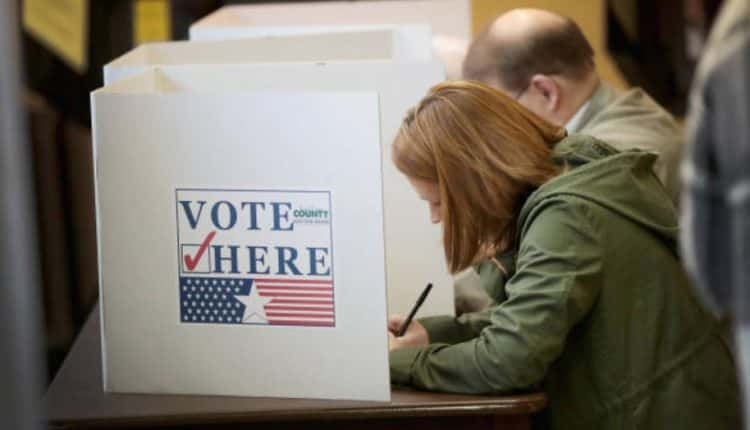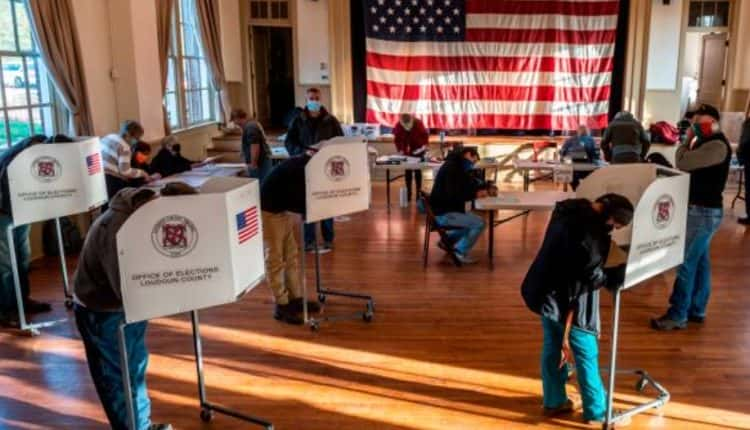
In a divisive decision that challenges decades of legal precedent, the 8th Circuit Court of Appeals, based in St. Louis, ruled on Monday that private individuals and groups, including the NAACP, lack the standing to sue under a key section of the federal Voting Rights Act.
This 2-1 decision contradicts established norms and raises concerns about the potential erosion of protections afforded by the landmark 1965 law, which has long been a bulwark against discriminatory voting practices.
Appeals Court Denies Private Lawsuits, Raising Concerns
The court’s majority decision, written by US Circuit Judge David R. Stras and joined by Judge Raymond W. Gruender, contends that only the US attorney general can enforce Section 2 of the Voting Rights Act.
This section mandates the inclusion of districts in political maps where minority populations can elect their preferred candidates.
The majority argued that while other federal laws, such as the 1964 Civil Rights Act, specify conditions under which private groups can sue, the Voting Rights Act lacks similar clarity.
The ruling affirmed a lower judge’s decision to dismiss a case brought by the Arkansas State Conference NAACP and the Arkansas Public Policy Panel. Chief Judge Lavenski R. Smith dissented, emphasizing that federal courts nationwide, including the US Supreme Court, have considered numerous cases brought by private plaintiffs under Section 2.
He urged adherence to “existing precedent that permits a judicial remedy” unless the Supreme Court or Congress dictates otherwise.
Read more: Mayor Eric Adams Faces Heightened Scrutiny As FBI Seizes Phones And IPad In Investigation
Voting Rights Advocate Fears Democracy’s Decline After Court Decision

Sophia Lin Lakin, director of the ACLU’s Voting Rights Project, criticized the decision as a “travesty for democracy.” Representing the two Arkansas groups, Lakin expressed concern that the ruling jeopardizes critical protections fought for by voters over the years.
The case revolved around the challenge of new Arkansas state House districts, with the plaintiffs arguing that the redistricting plan diluted the influence of Black voters.
Despite acknowledging a strong case under the Voting Rights Act, US District Judge Lee Rudofsky concluded that only the US attorney general could bring such a challenge.
The decision’s impact is confined to federal courts within the 8th Circuit, covering Arkansas, Iowa, Minnesota, Missouri, Nebraska, North Dakota, and South Dakota.
However, it adds to the growing national debate as multiple lawsuits by private groups contest various political maps across the country.
Legal experts anticipate that the case may reach the U.S. Supreme Court, especially considering a reference to a related issue in a 2021 opinion by Justice Neil Gorsuch.
The decision also contrasts with a recent 5th US Circuit Court of Appeals ruling that affirmed the right of private litigants to sue under the Voting Rights Act in a Louisiana congressional redistricting case.
With voting rights advocates expressing concern over the potential limitations on private lawsuits under Section 2, the decision underscores the broader challenges in maintaining and reinforcing voting protections in an environment where such issues are deeply politicized.
As the legal landscape evolves, the Voting Rights Act’s efficacy in safeguarding minority voting rights hangs in the balance, awaiting potential review by the nation’s highest court.
Read more: Biden Contemplates Exiting 2024 Race Following Trump’s Lead In Critical Battlegrounds

